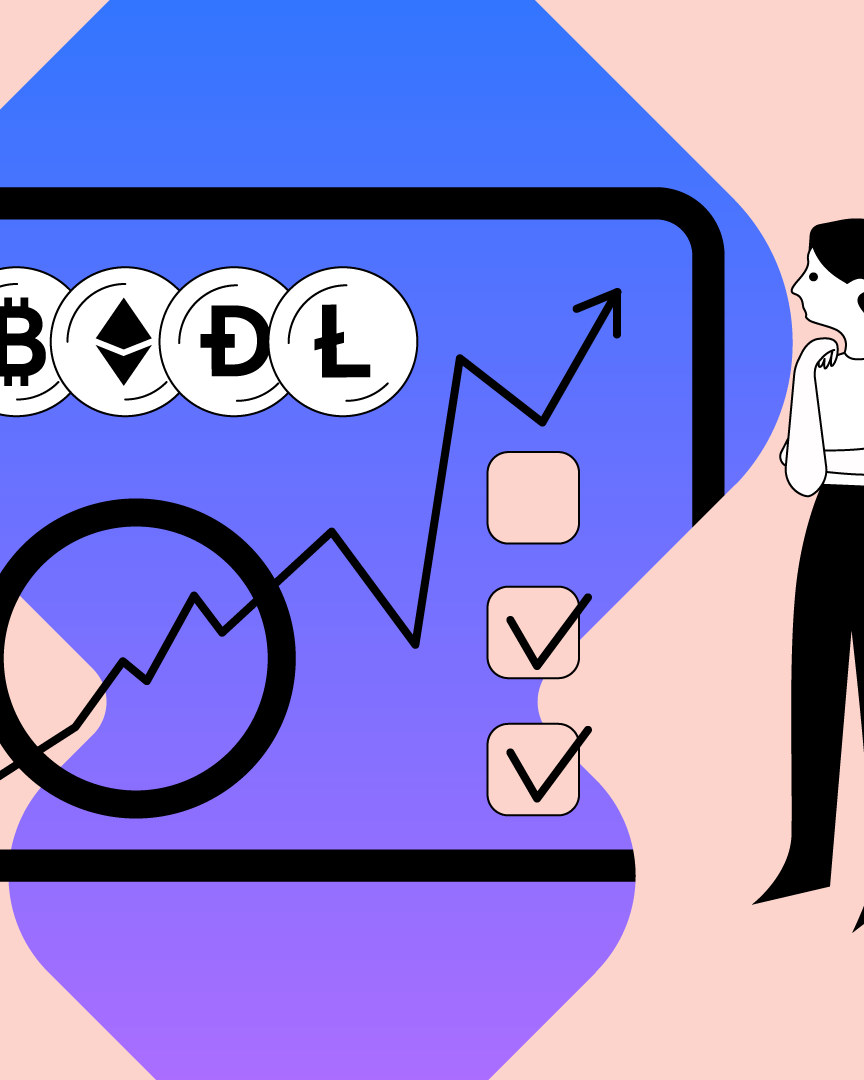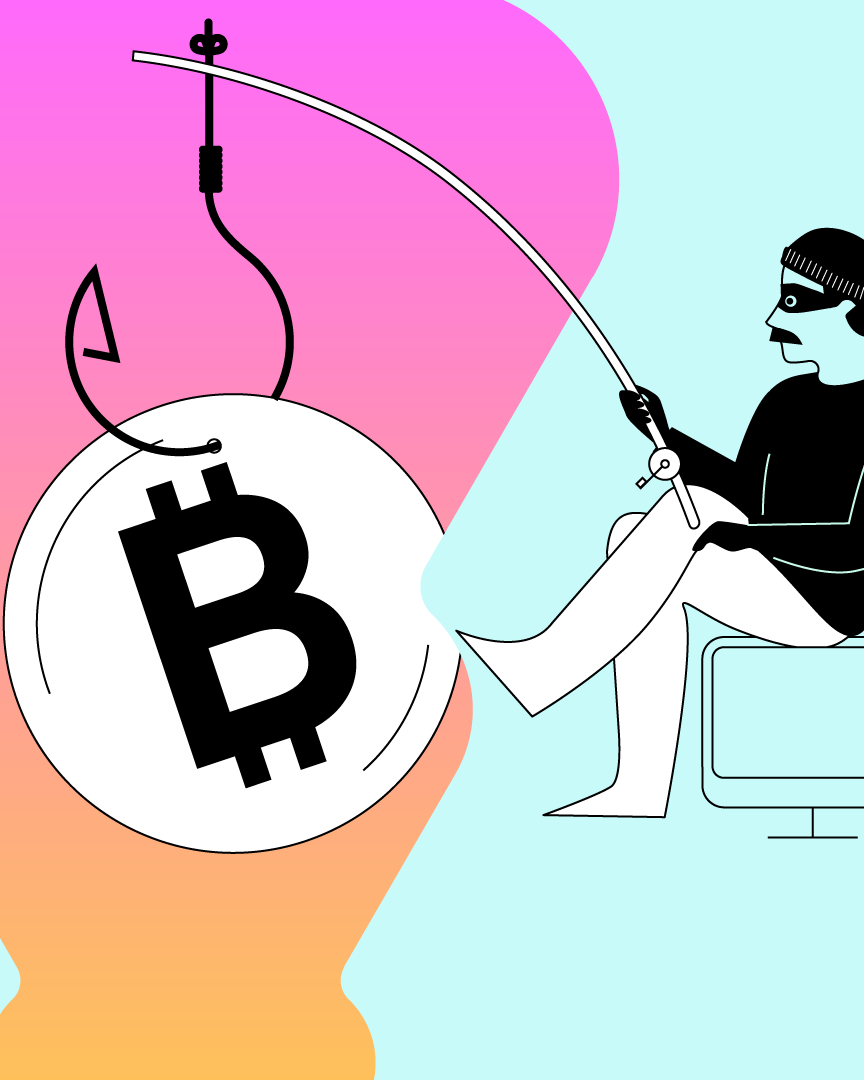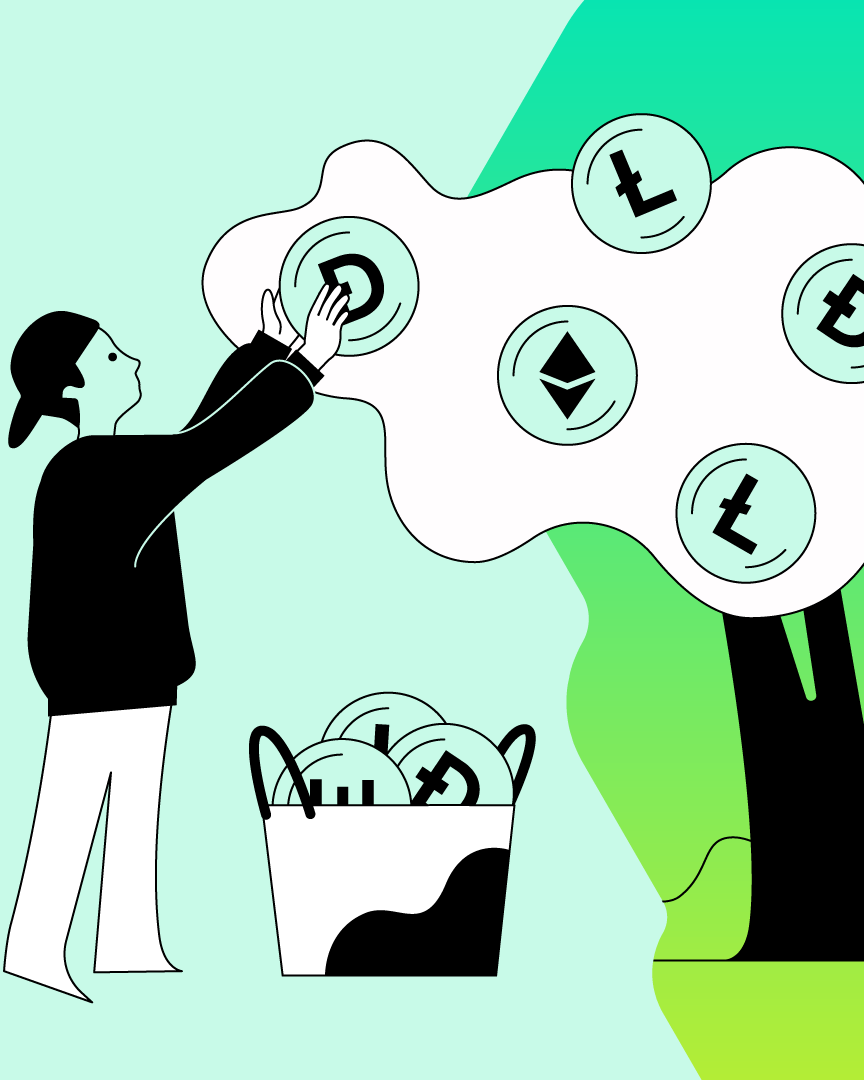1.07 Best practices to keep your crypto safe
This lesson provides you with valuable tips and tricks to keep your cryptocurrencies safe.

Do you feel anxious while reading countless news of hacks and attacks on cryptocurrencies? Do you worry if a malicious actor is accessing your tokens right now? Let’s go together through the best practices to deploy for securing your digital currencies.
This lesson provides you with valuable tips and tricks to keep your cryptocurrencies safe.
Contents
- Use a cold wallet
- Maintain multiple wallets
- Create strong and unique passwords
- Use trusted exchanges
- Never share your private keys
- Activate 2-factor authentication (2FA)
- Make sure the recipient wallet address is correct
- Steer clear of giveaway scams, fake websites & phishing
- Have a backup of your seed phrase
Now, before we start it is important to note that the architecture of blockchain is fundamentally quite secure. Digital currencies use cryptographic mechanisms to ensure security. Hence, the vulnerability of cryptocurrencies do not arise from blockchain, but from the devices and external infrastructure where you store your wallet, keys, etc.
Before we go into more details, let’s go over the basic tips that ensure security to your digital assets.
- We advise you to create different email addresses for your accounts on crypto exchanges or online wallets. Don’t use the same email addresses that are connected to other services in order to better secure your crypto accounts.
- If you are using a desktop or mobile wallet, make backup of your keys and secure your device with a good password or biometric to prevent easy access to it by third parties when you lose your device or in case it is stolen.
- Make sure to install anti-virus software on your computer or laptop that stores wallets.
- Always remember to transfer your funds to another wallet if you are lending out your device.
Use a cold wallet
Always prefer cold wallets to hot wallets. As they aren’t connected to the internet, cold wallets are less prone to cyberattacks.
Hardware wallets or cold wallets enable you to store your private keys as well. They are encrypted and keep your private keys safe. The private keys to access your digital currencies are stored offline.
However, if you are a beginner, you may find it difficult to use a hardware wallet. Keep reading further to know how to keep your funds safe even when using a software wallet.
Maintain multiple wallets
Do not store all your cryptocurrencies in a single wallet. Try using multiple wallets like hardware wallets for long-term holdings and online wallets for immediate accessibility to transactions. We also suggest you store the maximum of your crypto funds in hardware or offline wallets and keep minimum funds in your online wallet.
Similar to how you diversify your investment funds into different financial instruments to minimize risks, storing your digital currencies into multiple wallets can help eliminate a single point of failure.
If you are using a software wallet, it is helpful to keep it updated with the latest security measures and install anti-virus software on your computer or other devices.
Create strong and unique passwords
We cannot underestimate the importance of passwords while discussing security.
Create a complex password and make sure you do not forget it.
Never use the same password for all your accounts, especially for your crypto-related accounts. Instead, try to use a strong password that has a minimum of 16 characters. You can also consider using password software managers like LastPass and KeePassXC that allow you to generate and store your passwords in a secure way.
Use trusted exchanges
If you are a beginner, you are more likely to use an exchange wallet as it is beginner-friendly. However, choose an exchange that is reputable and practices high-security standards. Always look for a well-known exchange in the community with excellent reviews.
At zondacrypto, all cryptocurrency funds of users are stored on cold wallets. Hence, they are not connected to exchange servers directly, guaranteeing that third parties cannot access the users’ funds.
Never share your private keys
If someone has access to keys unlocking your house, items and funds stored in the home are vulnerable. Similarly, if your private keys are leaked or fall into the wrong hands, your crypto funds are at risk.
We advise you to keep your private keys to yourself. Even while resolving the issues with your crypto wallets, you do not need to share your private keys.
Activate 2-factor authentication(2FA)
2FA method will add an additional security layer to your wallet. Do not forget to activate it in the security settings of your wallet account.
This option will send an additional password request either to your phone or to your Gmail account. We recommend you to use apps like Google Authenticator app or a physical key like YubiKey or FIDOkeys instead of SIM codes because SIM card swapping can be a threat to your account.
Make sure the recipient wallet address is correct
Before processing a transaction, double-check the recipient’s address.
Crypto transactions are irreversible, and even making a simple mistake of typing one wrong letter in the recipient’s address, your funds will be transferred to some other wallet.
Some malware programs can edit and change the address even if you type correctly. So we advise you to check it multiple times before confirming the transaction.
Steer clear of giveaway scams, fake websites & phishing
You may have received messages on social media channels like Telegram asking you to transfer cryptocurrencies to their account or promising you to double your coins through staking. However, these are complete scams and fake giveaways. So make sure to steer clear of them. It is also a good practice to avoid clicking on any suspicious links and emails.
Have a backup of your seed phrase
We understand how heartbreaking it is to lose your digital tokens either due to hacks or any physical damage. So, have a backup of your seed phrase. It will help you recover your crypto wallet along with the funds stored inside.
It is better to be safe than sorry, especially when it comes to cryptocurrencies. Now that you know all the best practices to keep your crypto safe, take action without any delay.
FR
This material does not constitute investment advice, nor is it an offer or solicitation to purchase any cryptocurrency assets.
This material is for general informational and educational purposes only and, to that extent, makes no warranty as to, nor should it be construed as such, regarding the reliability, accuracy, completeness or correctness of the materials or opinions contained herein.
Certain statements in this educational material may relate to future expectations that are based on our current views and assumptions and involve uncertainties that could cause actual results, performance or events to differ from those statements.
BB Trade Estonia OU and its representatives and those working directly or indirectly with BB Trade Estonia OU do not accept any liability arising from this article.
Please note that investing in cryptocurrency assets carries risks in addition to the opportunities described above.





















